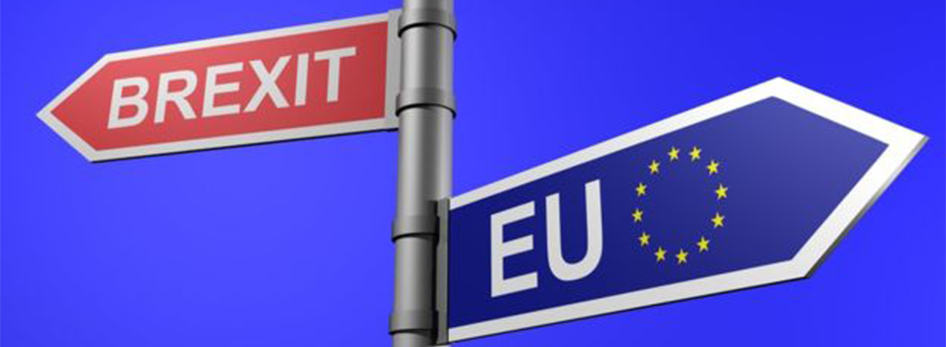
‘BREXIT READINESS CHECKLIST’ FOR COMPANIES DOING BUSINESS WITH THE UK
november 23, 2020 3:44 pmSource: Communication from the Commission to the European Parliament, the Council, the European Economic and Social Committee and the Committee of the Regions: ‘Getting Ready for changes: Communication on readiness at the end of the transition period between the European Union and the United Kingdom, COM(2020) 324 final, 9 July 2020, https://ec.europa.eu/info/publications/getting-ready-changes-communication-readiness-end-transition-period-betweeneuropean-union-and-united-kingdom
YOU NEED TO GET READY FOR 1 JANUARY 2021
The United Kingdom’s choice to cease to participate in the EU’s Single Market and Customs Union and put an end to the free movement of persons, goods and services with the EU as of 31 December 2020 means that the EU-UK relationship will change significantly for businesses on both sides from that date onwards.
These changes are inevitable, regardless of the outcome of the ongoing EU-UK negotiations, and risk compounding the pressure that businesses are already under due to the COVID-19 outbreak.
This checklist aims to help EU companies doing business in the United Kingdom (UK) and/or UK companies doing business in the EU to double-check their state of readiness for 1 January 2021.
It provides an overview of the main areas of change that will take place in any event as of 1 January 2021 irrespective of whether an agreement is reached on a future economic and security partnership. It addresses the most common issues and should not be considered to be exhaustive.
Additional guidance can be found in the Commission Communication ‘Getting ready for changes’,1 as well as in sectoral stakeholder ‘readiness notices’ published by the Commission services and available here: https://ec.europa.eu/info/european-union-and-united-kingdom-forging-new-partnership/future-partnership/getting-ready-end-transition-period_en#readiness-notices.
It is essential that all companies prepare for these broad and far-reaching changes and that they take all necessary decisions, and complete all required administrative actions before 31 December 2020.
TRADE IN GOODS
 Importer/Exporter obligations
Importer/Exporter obligations
Under EU law, businesses have different responsibilities depending on where they are situated in the supply chain (e.g. manufacturer, importer, wholesale distributor, etc.).
As of 1 January 2021, EU businesses that currently buy goods from the UK and place them on the EU market will become importers while those that currently distribute products to the United Kingdom will become exporters. This means that they will need to comply with a new set of obligations according to the applicable Union rules.
 Customs formalities, checks and controls on goods
Customs formalities, checks and controls on goods
As of 1 January 2021, customs rules required under EU law will apply to all goods entering the customs territory of the EU from the United Kingdom, or leaving that customs territory to the United Kingdom. Even if an ambitious free trade area is established with between the EU and the UK, providing for zero tariffs and zero quotas on goods, and with customs and regulatory cooperation, all products traded between the EU and the United Kingdom will be subject to any applicable regulatory compliance checks and controls on imports for safety, health and other public policy purposes.
 Rules of origin
Rules of origin
As of 1 January 2021, companies will have to demonstrate the originating status of goodstraded in order for these to be entitled to preferential treatment under a possible future EU-UK agreement. Goods not meeting origin requirements will be liable to customs duties even if a zero-tariff, zero-quota EU-UK trade agreement is put in place. Trade between the EU and its preferential partners will also be affected, as UK content (in terms of both material and processing operations) will become ‘nonoriginating’ under Union preferential trade arrangements.
 VAT and excise duties
VAT and excise duties
As of 1 January 2021, the rules for payment and refund of Value Added Tax (VAT) will change. This is relevant for both goods and services. Excise duties will also be due upon importation of goods brought into the VAT territory of the European Union from the United Kingdom for excisable goods (alcoholic beverages, tobacco products, etc.).
 Certificates, authorisations, markings or labelling
Certificates, authorisations, markings or labelling
As of 1 January 2021, marketing authorisations issued by UK authorities will no longer be valid for placing products on the Union market. This means, for instance, that a car with a type approval issued by the United Kingdom can no longer be sold in the Single Market. Where EU law requires certification by an EU notified body – such as for some medical devices, machinery or construction products – products certified by UK-based bodies will no longer be allowed to be sold within the Single Market.
Similarly, markings or labelling of goods placed on the Union market, which refer to bodies or persons established in the United Kingdom, will no longer comply with Union labelling requirements.
 Chemicals
Chemicals
As of 1 January 2021, EU rules on the registration, evaluation, authorisation and restriction of chemicals (REACH) will no longer apply in the United Kingdom. Registrations held by manufacturers and producers established in the United Kingdom will no longer be valid in the EU.
PROVISION OF SERVICE
As of 1 January 2021, authorisations granted by UK authorities under the EU Single Market framework will no longer be valid in the EU. This has particular relevance for the areas of financial services, transport, audiovisual media, and energy services.
In order to access the Union market, UK service providers and professionals established in the United Kingdom will need to demonstrate compliance with any rules, procedures and/or authorisations that cover the provision of services in the EU by foreign nationals and/or companies outside the EU. Those requirements are frequently set out in national regimes. EU service providers and professionals established in the Union and operating in the United Kingdom will need to demonstrate compliance with all relevant UK rules.
 Financial services
Financial services
As of 1 January 2021, authorisations to provide services from the United Kingdom across the EU will stop applying. The provision of financial services from the United Kingdom to the EU will be possible subject to the relevant third country rules of the Member State concerned.
 Aviation
Aviation
As of 1 January 2021, air carriers holding operating licences granted by the UK licensing authority for the commercial carrying by air of passengers, mail and/or cargo, will no longer be able to provide air transport services within the European Union. EU air carriers and holders of aviation safety certificates will need to ensure and uphold compliance with EU requirements, including airlines’ requirements on principal place of business and EU majority ownership and control, as well as the EU aviation safety acquis communitaire.
 Road transport operators
Road transport operators
As of 1 January 2021, road transport operators that are established in the United Kingdom will no longer hold a Community licence. They will therefore no longer benefit from the automatic
access rights to the Single Market that such a licence entails, and namely the right of EU operators to conduct journeys and carry goods across the EU.
Transport and logistics operators will be affected by changes in the formalities required when crossing the UK-EU border. Border formalities will also affect drivers as well as passengers and cross-border workers. This includes border checks on persons – entailing the verification of entry and stay requirements, stamping of passports, and visa requirements if applicable.
 rofessional qualifications
rofessional qualifications
As of 1 January 2021, the UK will no longer be covered by EU rules on the recognition of professional qualifications. UK nationals, irrespective of where they acquired their qualifications, and EU citizens with qualifications acquired in the United Kingdom will need to have them formally recognised in the relevant Member State, based on that country’s rules for recognition of third-country qualifications. In many cases, this recognition process is more burdensome.
ENERGY
 As of 1 January 2021, although electricity and gas interconnectors can of course still be used, the United Kingdom will no longer participate in the Union’s dedicated platforms. Alternative fallback
As of 1 January 2021, although electricity and gas interconnectors can of course still be used, the United Kingdom will no longer participate in the Union’s dedicated platforms. Alternative fallback
solutions will be used instead to trade electricity on interconnectors with Great Britain. These should allow electricity trade to continue, although not with the same level of efficiency as within the Single Market today.
COMPANY LAW AND CIVIL LAW
 UK-registered companies
UK-registered companies
As of 1 January 2021, UK incorporated companies will be third-country companies and will no longer be automatically recognised. Their recognition will become subject to national law for third country-incorporated companies. Branches in EU Member States of UK incorporated companies will be branches of third-country companies. Subsidiaries of UK companies in the Union are, in principle, EU companies and will continue to be covered by all relevant Union and national legislation.
 Contracts – Jurisdiction clauses
Contracts – Jurisdiction clauses
As of 1 January 2021, Union rules facilitating the cross-border recognition and enforcement of judgements in the EU and in the United Kingdom during the transition period will no longer apply. Judgments handed down by a UK court might no longer be swiftly enforceable in the European Union compared to today’s situation.
OTHER ASPECTS: DATA, DIGITAL AND INTELLECTUAL PROPERTY RIGHTS
 Trademarks and designs, geographical indications, plant variety rights
Trademarks and designs, geographical indications, plant variety rights
As of 1 January 2021, while existing EU unitary intellectual property rights (EU trademarks, Community designs, Community plant variety rights and geographical indications) remain protected under the Withdrawal Agreement, any new EU unitary rights will have a reduced territorial scope as they will no longer have effect in the United Kingdom.
 Personal data
Personal data
As of 1 January 2021, the transmission of personal data from the EU to the UK is subject to the rules for data transfers to third countries, as set out in the EU General Data Protection Regulation(GDPR) or in the Law Enforcement Directive. This is relevant for many business sectors, particularly if EU businesses continue to work with data-centres located in the UK.
For further reading please see https://eur-lex.europa.eu/legal-content/EN/TXT/?qid=1594383487124&uri=COM%3A2020%3A324%3AFIN
Categorised in: News
